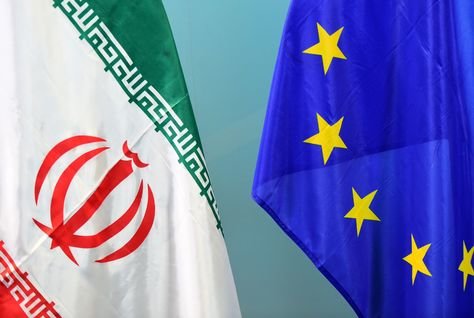INSUBCONTINENT EXCLUSIVE:
TEHRAN – In a new wave of diplomatic escalation, several European countries summoned Iranian diplomats on various excuses amid renewed
Israeli bluffs against Iran.The European hostile rhetoric against Iran has come with Israeli allegations that the Europeans are planning to
snap back international sanctions on Iran before the upcoming UN General Assembly meeting later this year. Israeli Foreign Minister Eli
Cohen predicted that the Western powers would trigger “snapback” sanctions on Iran before the 78th UN General Assembly in September
“The [United States] and relevant European countries will force snapback (sanctions) on Iran before the UN General Assembly in
September,” he told an Israeli news channel. Considering the U.S
is no longer a party to the Iran nuclear deal, formally called the Joint Comprehensive Plan of Action (JCPOA), Washington technically is
unable to restore the UN sanctions on Iran
The three European signatories to the deal, however, have the option of doing so
If true, this shows that the far-right Israeli government has turned into spokesman for Europe, which is escalating tensions with Iran
almost on a daily basis. In recent days, Britain, Germany, and Austria have summoned the Iranian ambassadors each for various reasons
Germany even declared two Iranian diplomats stationed in Berlin as persona non grata.German Foreign Minister Annalena Baerbock said in
statement that Germany decided to declare “two Iranian embassy staff members to be persona non grata and ordering them to leave Germany
immediately.”Relations between Iran and Europe started going south in the wake of European expressions of support for unrest in Iran in
recent months.The European Union also imposed sanctions on a number of Iranian individuals and entities. Iran responded in kind. On
Wednesday, the most senior British diplomat in Tehran was summoned to the Iranian foreign ministry over “baseless allegations” by
British authorities against the Islamic Republic. “Iran’s Ministry of Foreign Affairs (MFA) summoned Ms
Isabelle Marsh the interim chargé d’affaires of the British Embassy to protest the continuation of baseless allegations against the
Islamic Republic of Iran,” the foreign ministry said in a statement. The statement added, “In this meeting, the head of the Foreign
Ministry’s Third Department of Western Europe called the baseless claims a continuation of the Iranophobia policy and demanded an end to
this unfriendly approach adopted by the British government.”It further said, “He described the new British sanctions as
politically-motivated, adding that a country that has dealt with migrants and Muslims with the most severe discrimination and transfers
refugees to Rwanda in breach of international law, is in no position to preach about human rights.”The statement concluded, “In the past
four decades, the Islamic Republic of Iran has shown that it will not give in to hype and foreign pressures, and it will accordingly
announce a counter-response to the British regime’s sanctions soon
Isabelle Marsh also said she would convey Iran’s protest to London at the earliest.”Also, the Iranian foreign ministry issued a
statement on Tuesday slapping a fresh list of sanctions on several British and European Union (EU) individuals and organizations for
supporting terrorism and inciting violence against Iranians.The ministry had cautioned on Monday that Iran will respond to similar measures
by the UK and the Council of the European Union against a number of groups and individuals in Iran over what they claimed was the Islamic
Republic’s response to foreign-backed riots that broke out in some Iranian cities in September. The ministry said the countermeasures
will put restrictions on certain European individuals and entities.According to Press TV, the ministry’s statement described the
reciprocal actions as “counteraction” that had been sanctioned by the “relevant authorities” and “counter-sanction mechanisms”
of the Islamic Republic.It listed the EU and UK’s “support for terrorism and terrorist groups” and their “incitation to acts of
terror and violence against the Iranian people” as some of the justifications for the adoption of the reciprocal measures.Iran’s
intelligence services affirmed that the violent riots left footprints of U.S
and other Western espionage agencies.The ministry also criticized the EU and UK for “interfering in the domestic affairs of the Islamic
Republic” and for “propagating lies and disinformation about Iran.”Iran’s reciprocal actions require that people who have been
sanctioned cannot be granted visas and cannot enter the Islamic Republic, the ministry said.Bank accounts and other assets belonging to the
named people and organizations must also be frozen as part of the measures.The counter-sanctions list includes 15 current and former
European officials, including Isabelle Lonvis-Rome, France’s Minister for Gender Equality, Diversity, and Equal Opportunities; Roland
Lescure, France’s Minister Delegate for Industry; Josef Schuster, Germany’s Central Council of Jews; Alex Benjamin, Europe Israel Public
Affairs’ Director; Jamie M
Fly, President and Chief Executive Officer (CEO) of Radio Free Europe/Radio Liberty; and head of Ger.It also lists 13 European
organizations, including Christians for Israel, the European Coalition for Israel, the Center for Information and Documentation Israel, the
Eurospike armaments manufacturer, and six German defense contractors.Eight more British citizens are included on the list, including Alan
Jacob, a member of The Jewish Chronicle’s board of directors, Matthew Jonathan Jukes, assistant commissioner for specialist operations for
the Metropolitan Police Service, and six military officers.The tit-for-tat move comes at a time when the Europeans are deliberately
escalating tensions with an Iran that seeks to soothe tensions. Instead of building bridges, the Europeans are burning them
The latest move in this regard is the allegations regarding enrichment at 84% purity in Iran, a claim that Iran rejected as technically
unimportant. Despite European allegations, Iran held meetings with inspectors from the International Atomic Energy Agency to provide
Currently, the inspectors are in Iran studying the situation.

